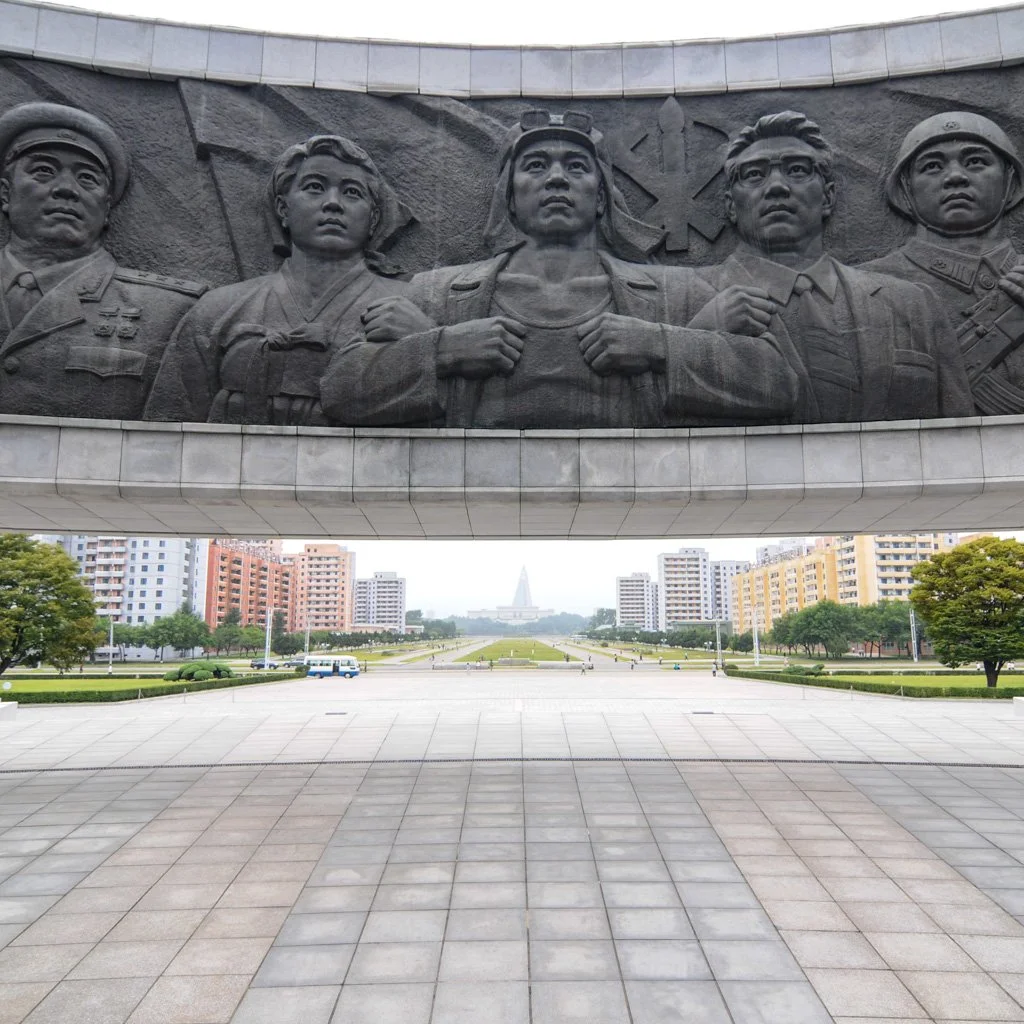A Needs Mapping and Training Update
North Korean Banker: We want to learn about ETFs and Private Equity...
CE Consultant: Why do you want to know about ETFs (Exchange Traded Funds)? You are 30 years, at least, away from developing one!
North Korean Banker: For curiosity...I read about it in the Financial Times.
- Meeting in Pyongyang (April 2011)
April Needs Mapping - Successfully Identified Priority Needs and “Best-in-class” Partners
In mid-April, Choson Exchange's Executive Director, travelled to Pyongyang with two management consultants to gain a better understanding of how the North Korean economic landscape is changing, North Korean institutions we wish to partner for training and to understand in more concrete terms what capabilities our NK partners want to develop in the next 3 to 5 years.
Institutions we met (a self-selected group) expressed a surprising level of openness with regards to the need for learning from development models from abroad, and for skills training overseas. A list of institutions we met and profiled can be found at http://chosonexchange.org/?p=881 and we have selected key partners who expressed strong interest in training and a focus on providing such opportunities to younger members of their organizations. We apologize for only being able to make a limited amount of information public. Photos from the trip can be found at http://chosonexchange.org/?p=889
June Legal Needs Mapping Trip
Geoffrey again accompanied a team member, who is a lawyer based in Beijing. We are currently working on a report on the laws governing foreign direct investment. The legal structure, we found, is similar to the framework employed in China: the issue of building trust by applying and enforcing these laws fairly and consistently remains the unknown commodity.
The report will be on our website soon.
Scholarships - Selected High-Performing Candidates for Year-Long Study and Internship
We also had a chance to interview and select the first batch of candidates for our study abroad program, in which North Koreans under 30 will receive a year of graduate level education in the fields of macro-economics, business and finance. We were able select from a pool of very promising candidates - we were somewhat surprised that the process for this has become (relatively) less painful.
Unfortunately, the Singapore side of things has hit some roadblocks. The institution which seemed likely to host the students has decided that this year will be impossible to implement such a program. As such we are actively seeking university partners further afield who would be willing to accept North Koreanscandidates. We are especially interested in the UK or Hong Kong. Any advice or assistance would be very welcome. As always, email us at CEteam@chosonexchange.org
In lieu of a full year academic programs, we have decided to bring these candidates out for a policy study trip instead.
Postponed Programs - June Silicon Valley Entrepreneurship Workshop in Pyongyang
June was to see a delegation of Silicon Valley IT entrepreneurs having several days of workshops and meetings with companies and government officials, hosted by the Korea Computer Center. We had hoped for the opportunity to reach out to a segment of North Koreans beyond the economic policy and finance circles we normally work with, but ran into some visa difficulties for US workshop leaders.
Upcoming Programs - August and September Training Sessions
Rason - In association with Hanns Seidel Foundation, we’ll be conducting a training program in Rason, concurrent with a trade/investment fair. We hope to get a better idea of Rason’s administrative structure and training needs in the economic zone on this trip.
In September, we are also working on an economic strategy training workshop in Pyongyang with relevant North Korean government agencies. We will be bringing down policymakers who work on economic strategy to run a 3 day workshop.
We are also preparing to implement two overseas study trips. Details will emerge occasionally on our website.
Looking for Volunteers and Other Resources
We are also looking for companies and organizations (particularly in the fields of business, finance, economics or law) willing to host unpaid or stipend-receiving interns, preferably in Hong Kong, Beijing, or Singapore.
As we prepare to launch training workshops in July/August/September/October, we are looking for those with an interest to volunteer and support us. For more information, check out our recent recruitment notice at http://chosonexchange.org/?p=883. Also, financial sponsors are most appreciated as we are currently suffering a deficit in our operations.
Contact Us
This occasional newsletter is brought to you by the Choson Exchange team. To contact us, please email CEteam@chosonexchange.org
Please follow us on twitter! We hear that is where things happen these days. @chosonexchange








